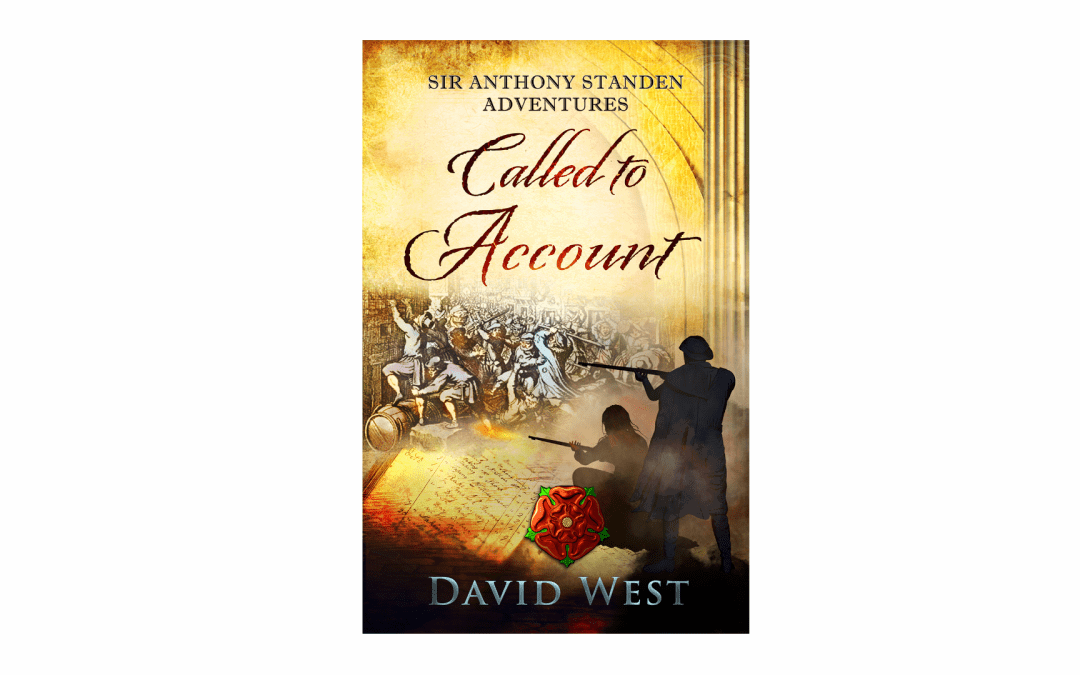I was recently interviewed about Called to Account, the fourth book in the Sir Anthony Standen Adventures, due to be published on 8th November.
1. What motivated you to write your book, to force you from taking an idea or experience and turning it into this book? I’d finished the third book in the series. I flicked forwards through history. Nothing excited me about 1611, but the Fettmilch uprising in 1612 did. Book 3 had the underlying theme of gender inequality. Racism seemed like an exciting and worthwhile theme to work on next.
2. What is it about and who is it for? It’s a murder mystery set against the background of an erupting pogrom. The central character, Maria, falls in love with a Jewish doctor who is concealing his faith, so it’s a romance as well. Anyone who enjoys historical fiction with a murder mystery and a touch of romance should enjoy it, I hope.
3. What takeaways might the reader be left with after reading it? Why do we hate? Anti-semitism wasn’t invented by Adolf Hitler. It’s great that we have movements like Black Lives Matter and Me Too, but isn’t it sad that we still need them? Why is “woke” a pejorative? It means alert to injustice in society. Why is that a bad thing?
4. How did you decide on your book’s title and cover design? Jacqueline Abromeit has designed the covers for all books in the series. She added an image of the uprising to the brand. There was a mini-ice-age at the start of the 17th century. The resulting crop failures had to blamed on someone. Witches and Jews took the blame. I had the idea that Sir Anthony would read the account book of the vineyard that he may buy, and discover the decline in crop yield. I made a ledger key to the murders investigation later in the book There is a theme running through the series about creation, and the Big Bang. Matter and anti-matter, yin and yang, credit and debt. For a murder mystery Called to Account seemed right.
5. What advice or words of wisdom do you have for fellow writers? Read The Seven Basic Plots, by Christopher Booker. In terms of fiction, it was my eureka moment. I use the word moment loosely, it’s 705 pages long.
6. What trends in the book world do you see — and where do you think the book publishing industry is heading? Audiobooks are growing so fast. I’ve got an actor / producer working on the series now. There will always be major publishers and physical bookstores, but it’s becoming a lot easier for Indie writers to publish quality books. So, I think volume will edge towards Indie.
7. What challenges did you overcome to write this book? Romance has never been my favorite genre. Fortunately my wife has an encyclopedic knowledge of the Jane Austen and Georgette Heyer books. She helped me a lot with plotting the ups and downs of a difficult romance. She also drafted significant scenes.
8. How would you describe your writing style? If I think about the authors who have inspired me the most, I hope I come across as a mashup of Ian Fleming, Dennis Wheatley, and C.J. Sansom.
9. If people can buy or read one book this week or month, why should it be yours? It’s got murders, forensic investigation, sword fights, wine, gingerbread, witch trials, love, hate, and philosophy. What’s not to like?

